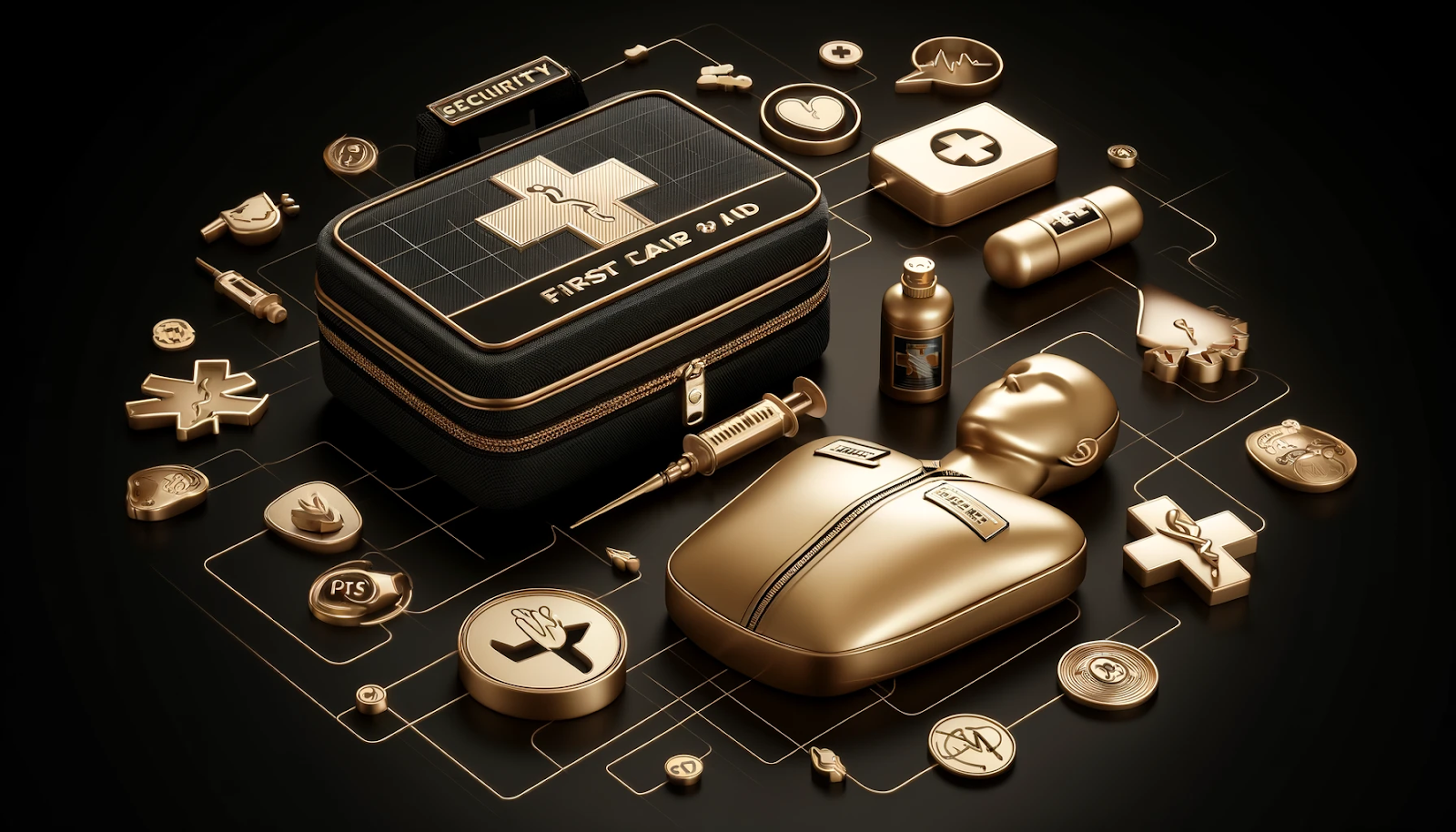In today's world, the role of a security guard goes beyond just guarding a property. They are often the first responders in emergencies, which makes first aid training and certification an essential part of their job. Property managers, chief security officers, and security company hiring managers must understand the critical importance of equipping their personnel with these vital skills.
The Role of Security Guards
Security guards are responsible for maintaining a property's and its occupants' safety and security. This responsibility often places them in situations where they might need to provide immediate assistance to individuals in distress. Whether it's a medical emergency, an accident, or a sudden illness, the ability to administer first aid can make a significant difference in outcomes.
Why First Aid Training is Crucial
- Immediate Response: In emergencies, every second counts. Trained security guards can provide immediate care before professional medical help arrives. This quick response can stabilize a situation, reduce the severity of injuries, and even save lives.
- Enhanced Professionalism: Security personnel with first aid certification demonstrate higher professionalism. They are better prepared to handle various situations, which can enhance the reputation of the security firm and instill confidence in clients.
- Compliance and Liability: Many industries require security personnel to have first aid training to comply with health and safety regulations. Additionally, trained guards can reduce employers' liability risks by ensuring that medical emergencies are handled promptly and effectively.
- Versatility in Roles: Security guards often work in environments where medical emergencies are likely, such as shopping malls, corporate buildings, and events. First aid training equips them with the skills needed to manage these situations, making them more versatile and valuable employees.
Key Components of First Aid Training
First aid training for security guards typically includes the following components:
- Basic Life Support (BLS): Techniques such as CPR (Cardiopulmonary Resuscitation) and AED (Automated External Defibrillator) usage.
- Wound Care: Managing cuts, abrasions, and other minor injuries.
- Burn Treatment: Providing initial care for burns to prevent further damage and complications.
- Choking and Respiratory Emergencies: Identifying and managing choking incidents and other breathing difficulties.
- Fractures and Sprains: Stabilizing and managing broken bones and sprains until professional help arrives.
Benefits to Employers
- Improved Safety Record: Companies prioritizing first aid training often see a reduction in workplace accidents and injuries, leading to a better overall safety record.
- Employee Morale: Security guards who feel confident handling emergencies will likely have higher job satisfaction and morale.
- Cost Savings: By reducing the severity of injuries through immediate care, companies can save on medical costs and workers' compensation claims.
Implementing First Aid Training
To effectively implement first aid training, employers should:
- Partner with certified training providers who offer comprehensive first-aid courses.
- Schedule regular refresher courses to keep skills up-to-date.
- Encourage a culture of safety where first aid training is valued and prioritized.
Frequently Asked Questions
Q: How often should first aid training be renewed? A: First aid certification typically needs to be renewed every two to three years, but it's advisable to check with the training provider for specific requirements.
Q: Are there different levels of first aid training? A: Yes, there are primary and advanced first aid courses. Security guards usually need at least basic training, but advanced training can be beneficial for high-risk environments.
Q: Can first aid training be done online? A: Some components can be learned online, but hands-on practice is essential for skills like CPR and using an AED. A blended approach combining online and in-person training is often the most effective.
Q: What should a first aid kit for security guards include? A: A first aid kit should have essentials like bandages, antiseptics, gloves, scissors, CPR masks, and an AED if possible.
Q: How can I find a reputable first-aid training provider? A: Look for providers certified by recognized organizations such as the American Red Cross or the American Heart Association. Online reviews and recommendations can also help identify reputable trainers.
Equipping security guards with first aid training is not just a regulatory compliance measure; it's a vital investment in safety and professionalism. Ensuring that your security personnel are trained and certified in first aid enhances their ability to protect and serve, ultimately creating a safer environment for everyone.
.png)
.png)
.png)

.png)
.png)

.png)
.png)
.png)
.png)
